Are you frustrated after being denied boarding on your recent flight? You're not alone, as many travelers face this issue and seek compensation for the inconvenience it causes. In this article, we'll guide you through the process of writing an effective letter template for your denied boarding compensation claim. So, if you're ready to reclaim what you deserve, read on for more details!
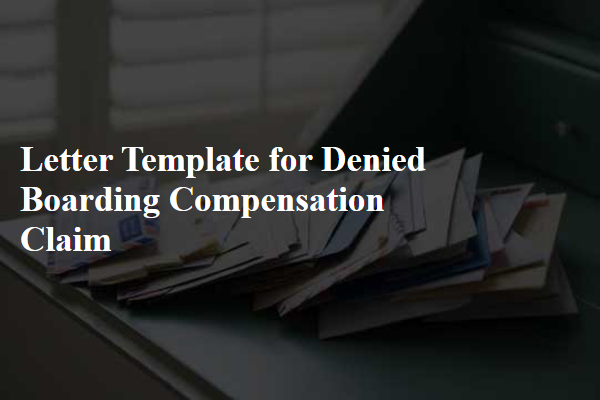
Personal Information
Claiming denied boarding compensation requires detailed personal information for proper documentation. Essential details include full name (as on identification), contact information (phone number and email), flight information (airline name, flight number, scheduled departure and arrival dates), and booking reference number. Additional documentation may include boarding passes and any communication from the airline regarding the denied boarding incident. The Airline Regulation (EU261/2004), applicable to flights within the European Union or operated by EU carriers, stipulates rights for passengers denied boarding, providing compensation ranging from EUR250 to EUR600 based on flight distance. Accurate and complete personal information enhances the claim's success rate.
Flight Details
Denied boarding compensation claims become necessary when passengers face involuntary denial of boarding on flights, often due to overbooking. In these situations, major airlines like Delta Airlines or British Airways must adhere to regulations set by the European Union's Regulation 261/2004, which requires compensation based on flight distance and delay. Flight details encompass crucial information such as the flight number (e.g., BA 1234), departure date (e.g., October 15, 2023), scheduled departure time (e.g., 3:00 PM), and the airport of departure (e.g., London Heathrow Airport) along with the destination airport (e.g., New York John F. Kennedy International Airport). Compensation amounts can vary: for short-haul flights (less than 1,500 km), eligible passengers may receive EUR250, while for flights between 1,500 km and 3,500 km, the amount may increase to EUR400 and exceed EUR600 for long-haul flights over 3,500 km. Understanding these aspects is crucial when submitting a claim efficiently.
Description of Incident
On April 12, 2023, at London Heathrow Airport (LHR), Flight BA 345 to New York City (JFK) faced significant delays due to operational issues, resulting in overbooking of the aircraft. Despite arriving at the gate on time, multiple passengers, including myself, were informed moments before boarding that our seats were no longer available. In total, 15 passengers were affected by this incident, leading to confusion and frustration among travelers. Airline staff provided minimal assistance, leaving passengers stranded and without accommodations for the night. This denial of boarding caused major disruptions to travel plans, including missed connections and additional costs. The incident not only disrupted my itinerary but incurred unexpected expenses such as hotel stays and transportation.
Claim Request
Travelers often face significant disruption due to denied boarding on flights operated by airlines like American Airlines, Delta Air Lines, or United Airlines. The Department of Transportation (DOT) can impose regulations outlining compensation, typically ranging from $675 to $1,350 depending on the flight distance. Airline policies may provide for vouchers, cash compensation, or travel credits; however, passengers must submit their claims formally to facilitate compensation. Essential information includes flight details (flight number, departure date and time), personal identification (name, contact information), and a clear account of events leading to denied boarding. Documentation such as boarding passes and any communication with airline staff should accompany the claim to strengthen the request.
Contact Information
Denied boarding can occur at crowded airports such as London Heathrow (LHR) or New York's JFK, affecting thousands of travelers. Air carriers, including British Airways and American Airlines, often deny boarding due to overbooking practices, where airlines sell more tickets than available seats. European Regulation EC 261/2004 entitles passengers to compensation of up to EUR600, depending on flight distance and delay duration. Travelers must collect relevant documents, including boarding passes, ticket information, and receipts, to support their claims effectively. Airlines may require claims to be submitted within a specific timeframe, generally within 28 days of the incident, to ensure eligibility for compensation.
Letter Template For Denied Boarding Compensation Claim Samples
Letter template of denied boarding compensation request for delayed flight
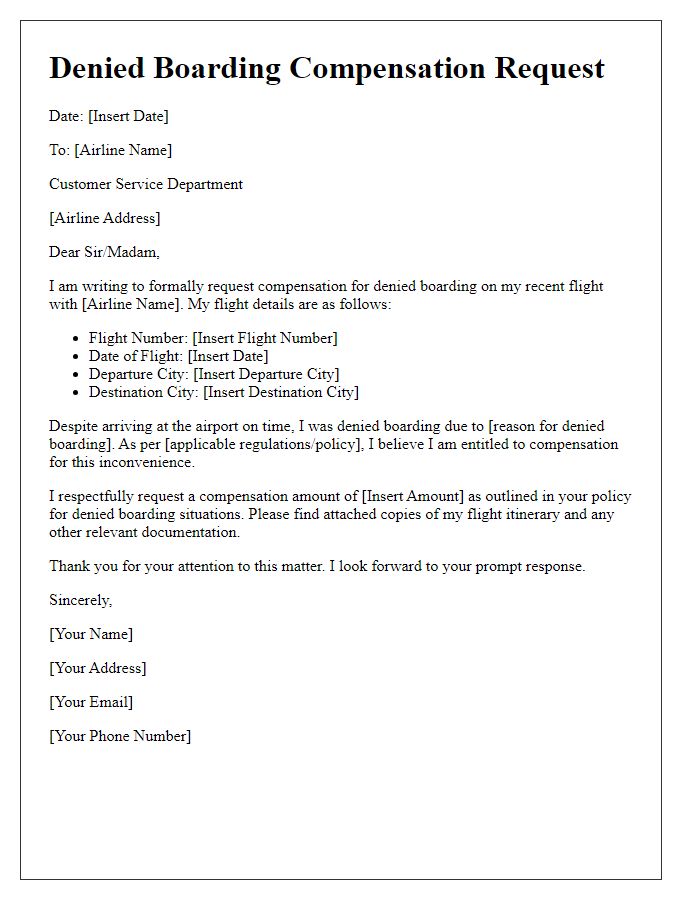
Letter template of denied boarding compensation claim due to overbooking
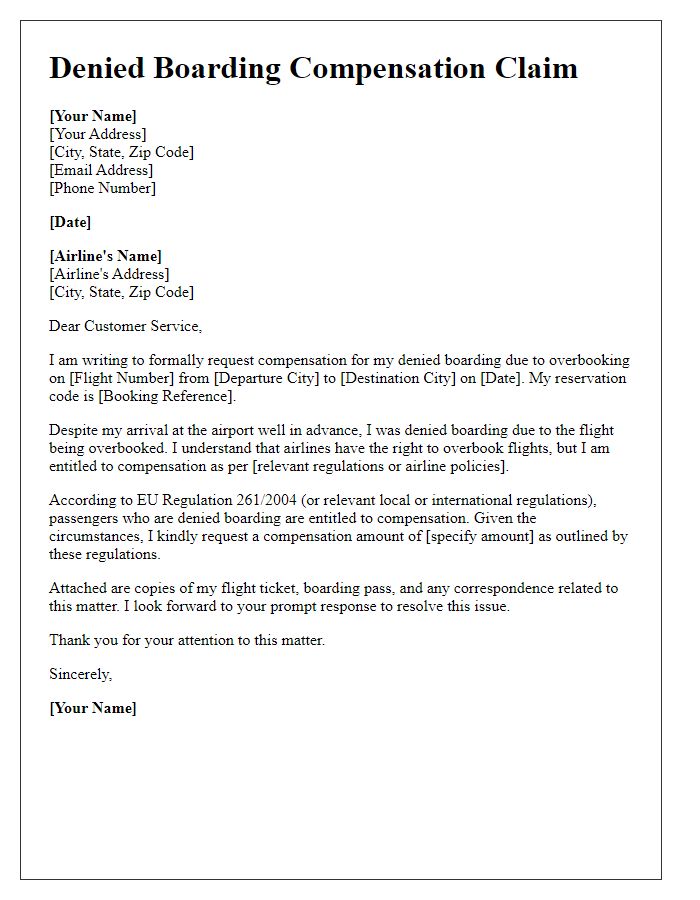
Letter template of denied boarding compensation appeal for missed connection
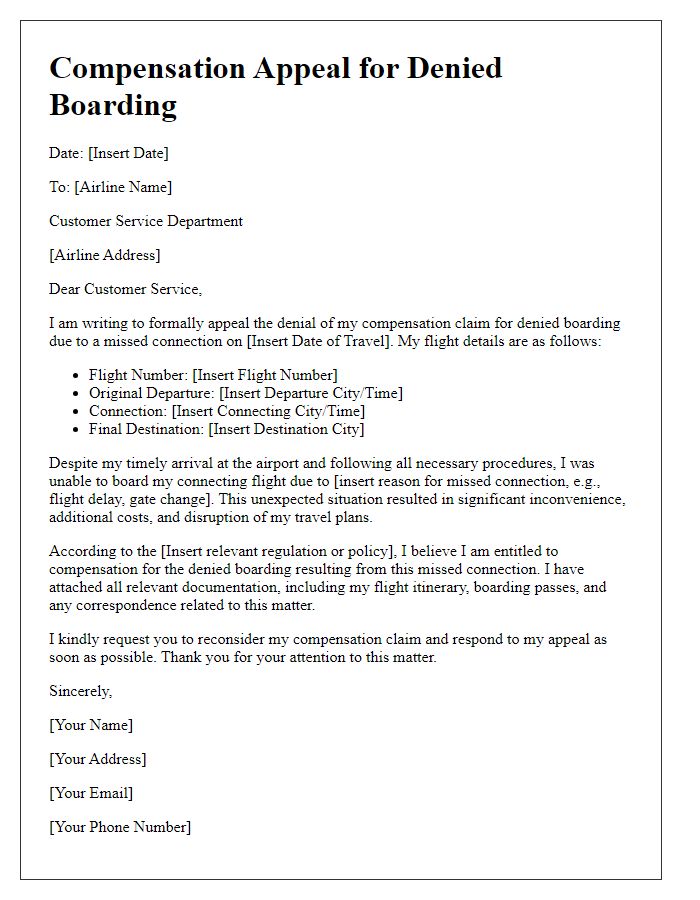
Letter template of denied boarding compensation inquiry after flight cancellation
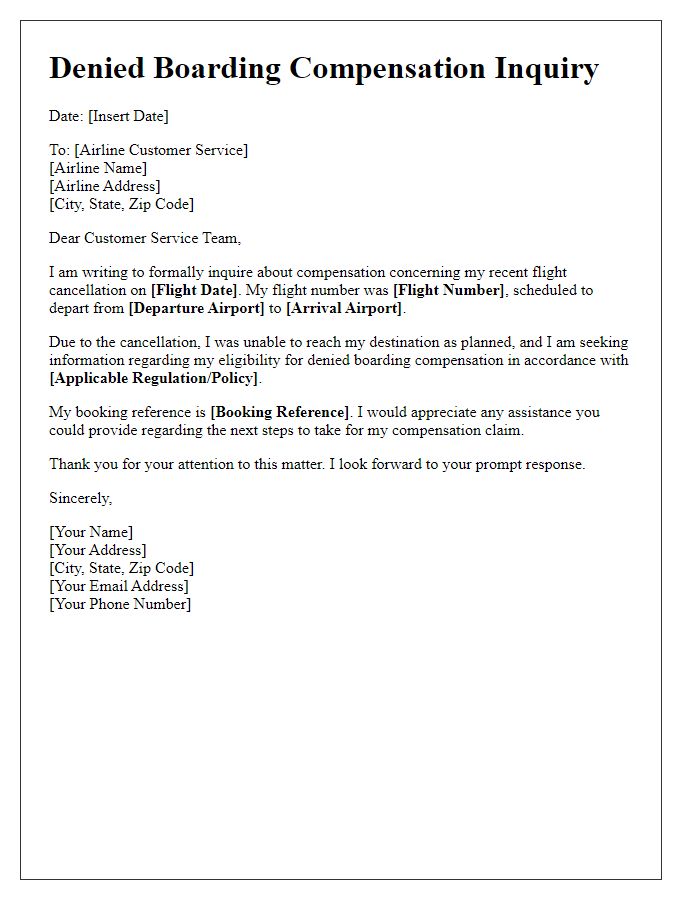
Letter template of denied boarding compensation request for family travel
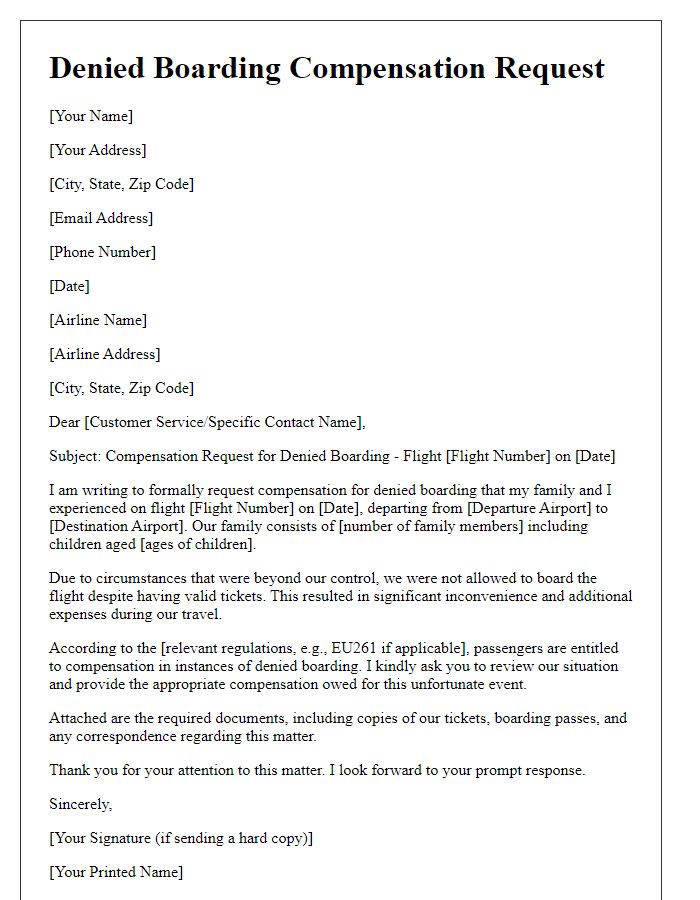
Letter template of denied boarding compensation claim for business travel disruption
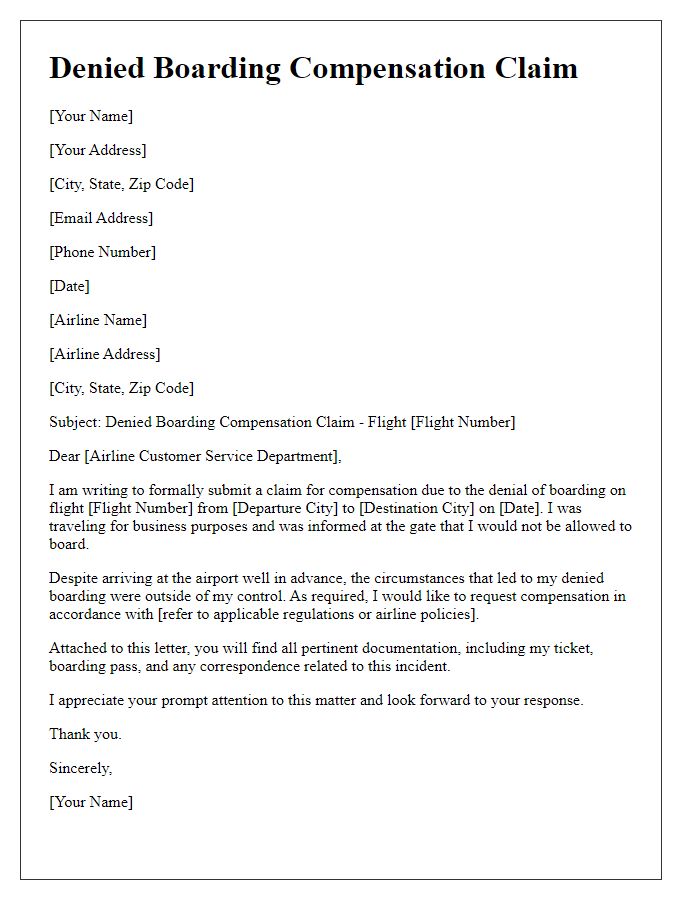
Letter template of denied boarding compensation follow-up for unresolved cases
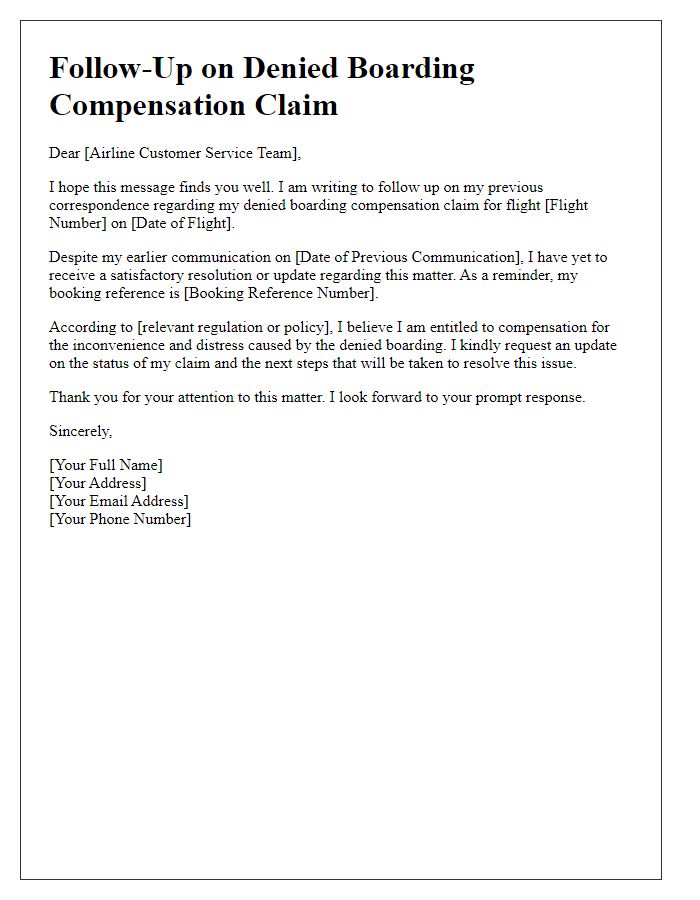
Letter template of denied boarding compensation request after airline negligence
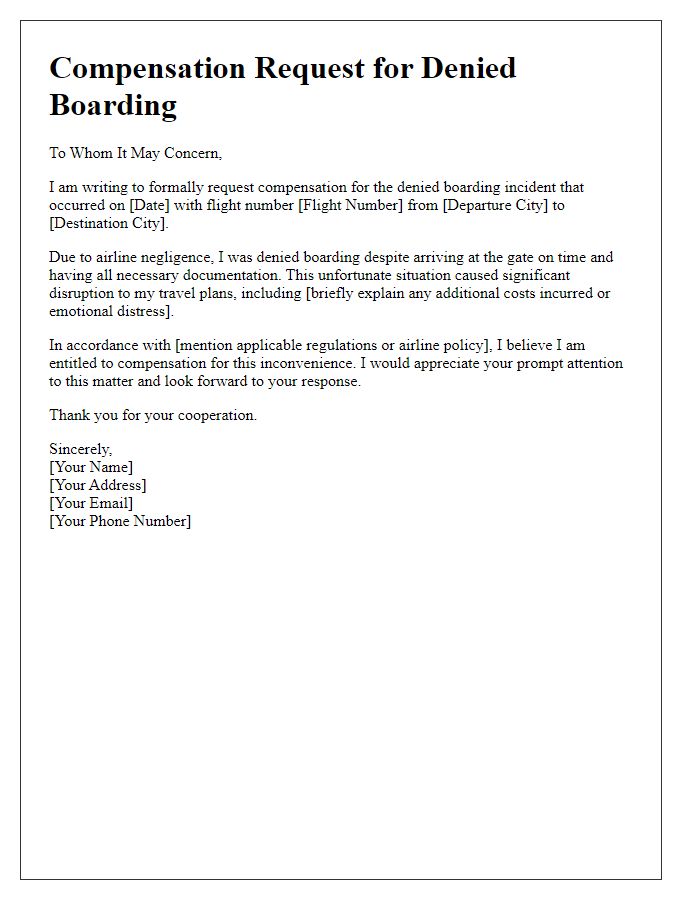
Letter template of denied boarding compensation claim for frequent flyer
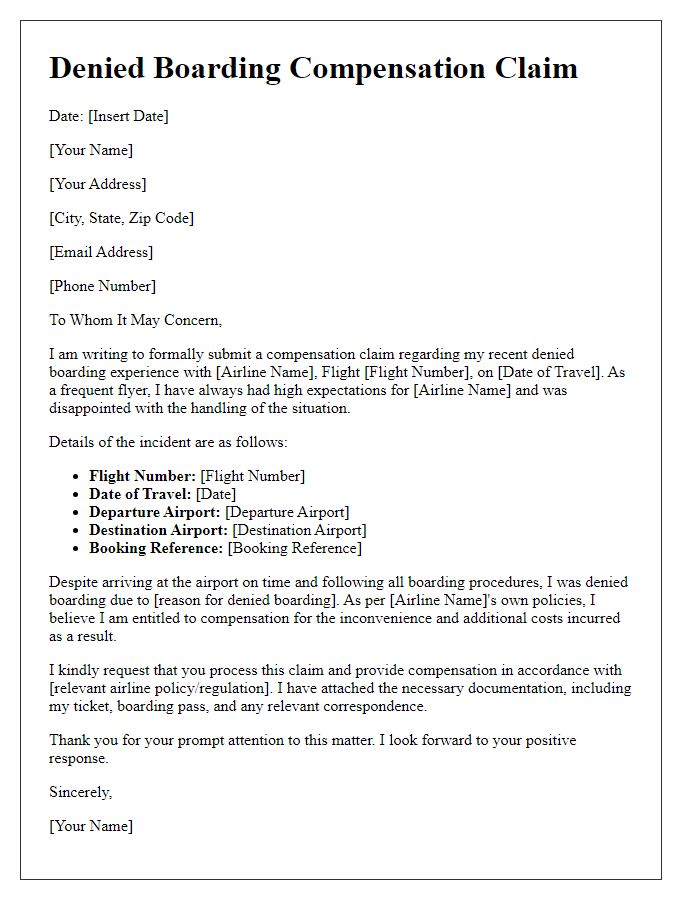

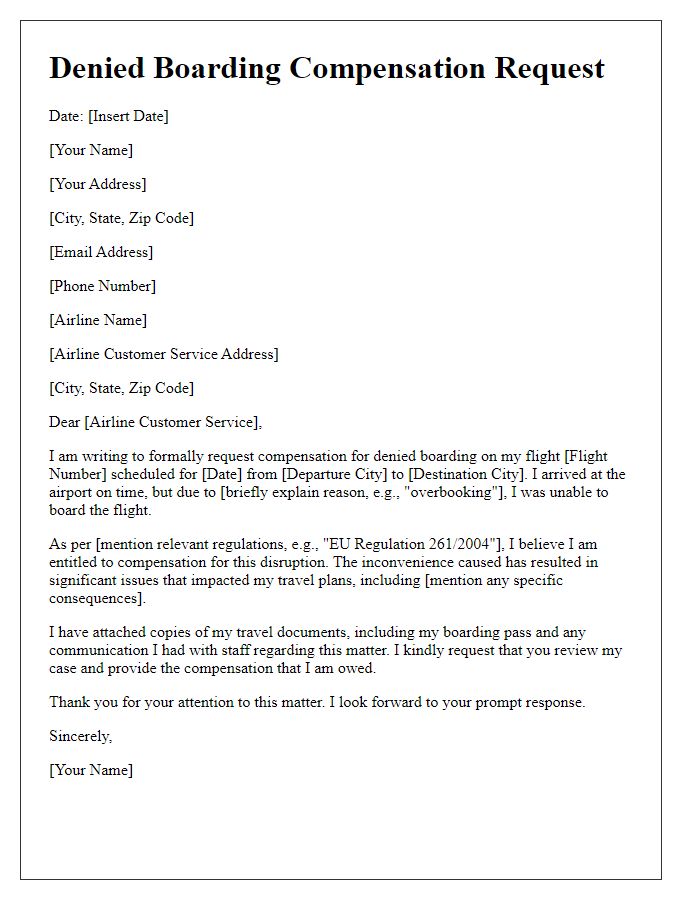


Comments